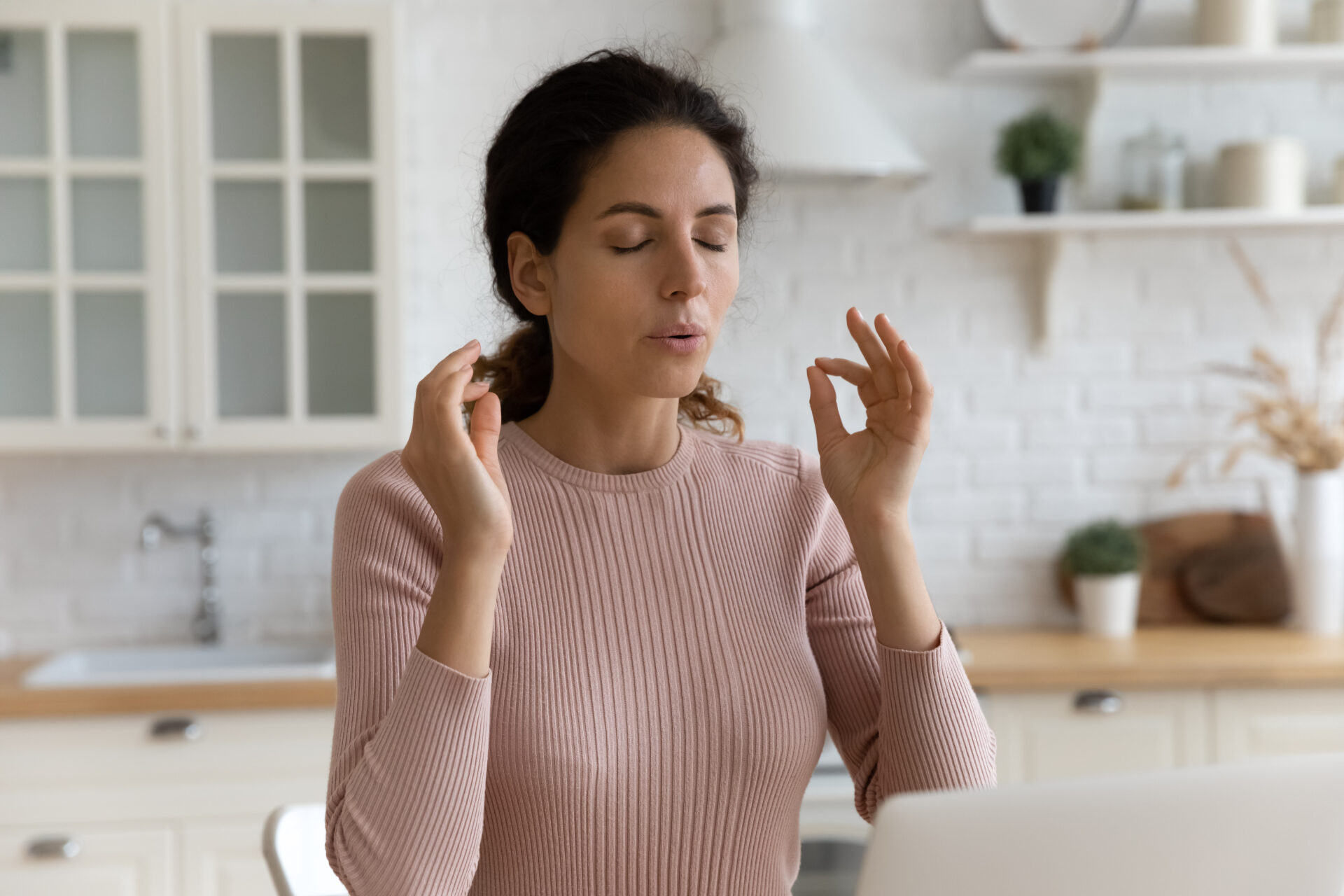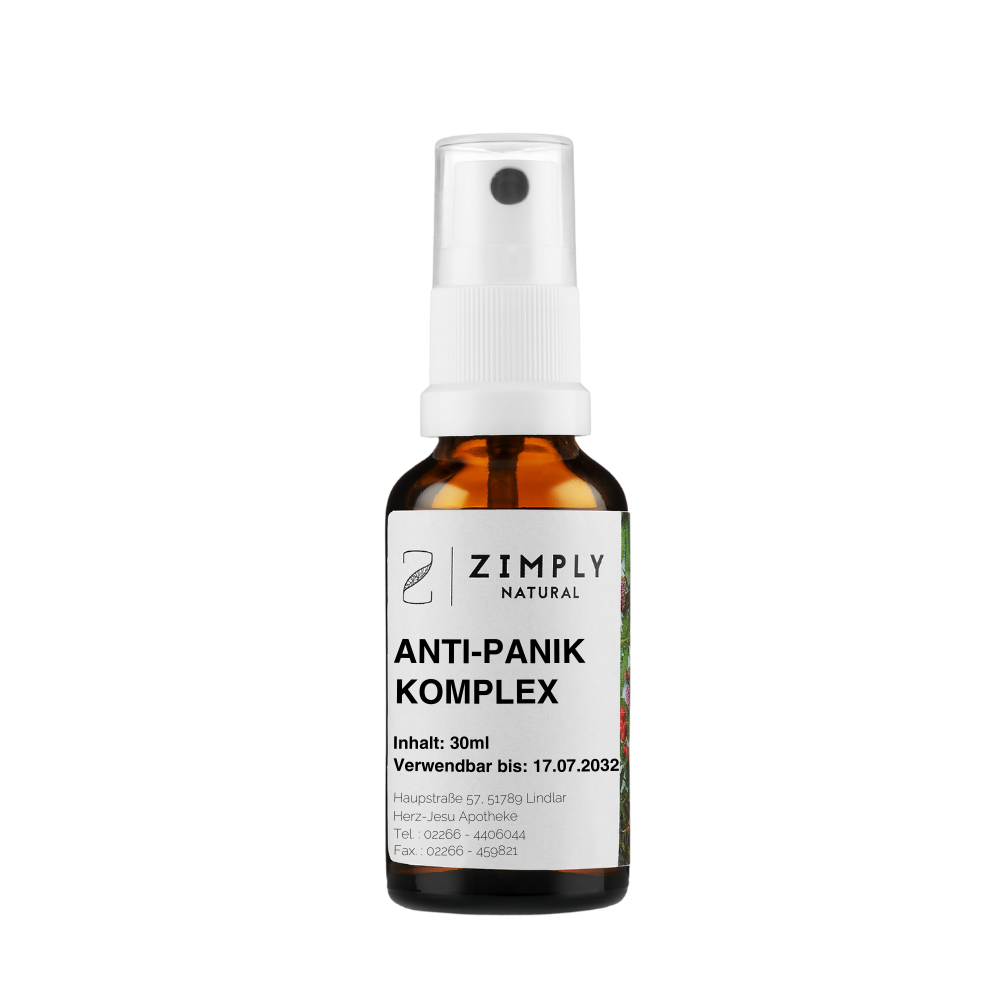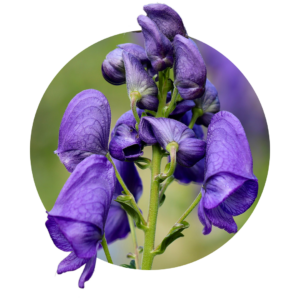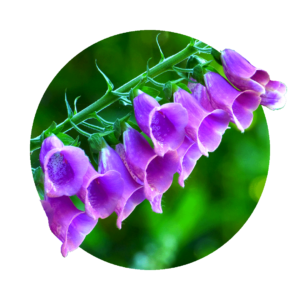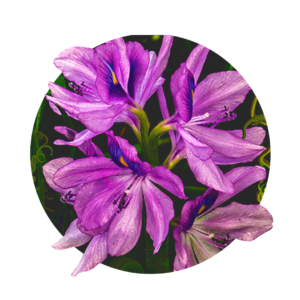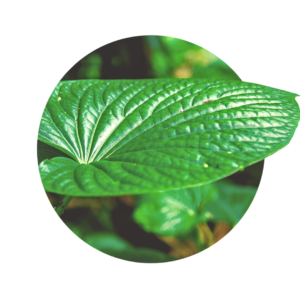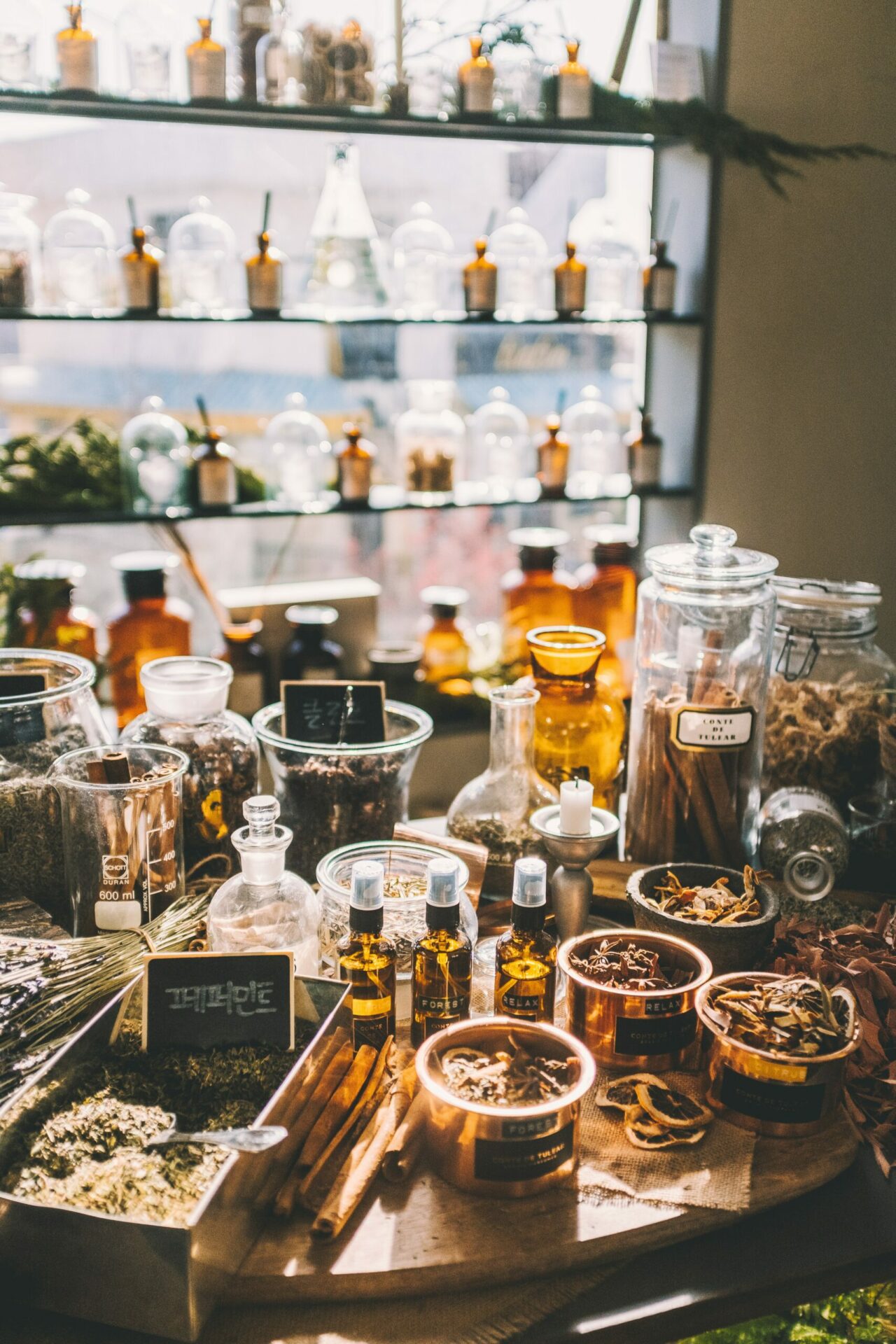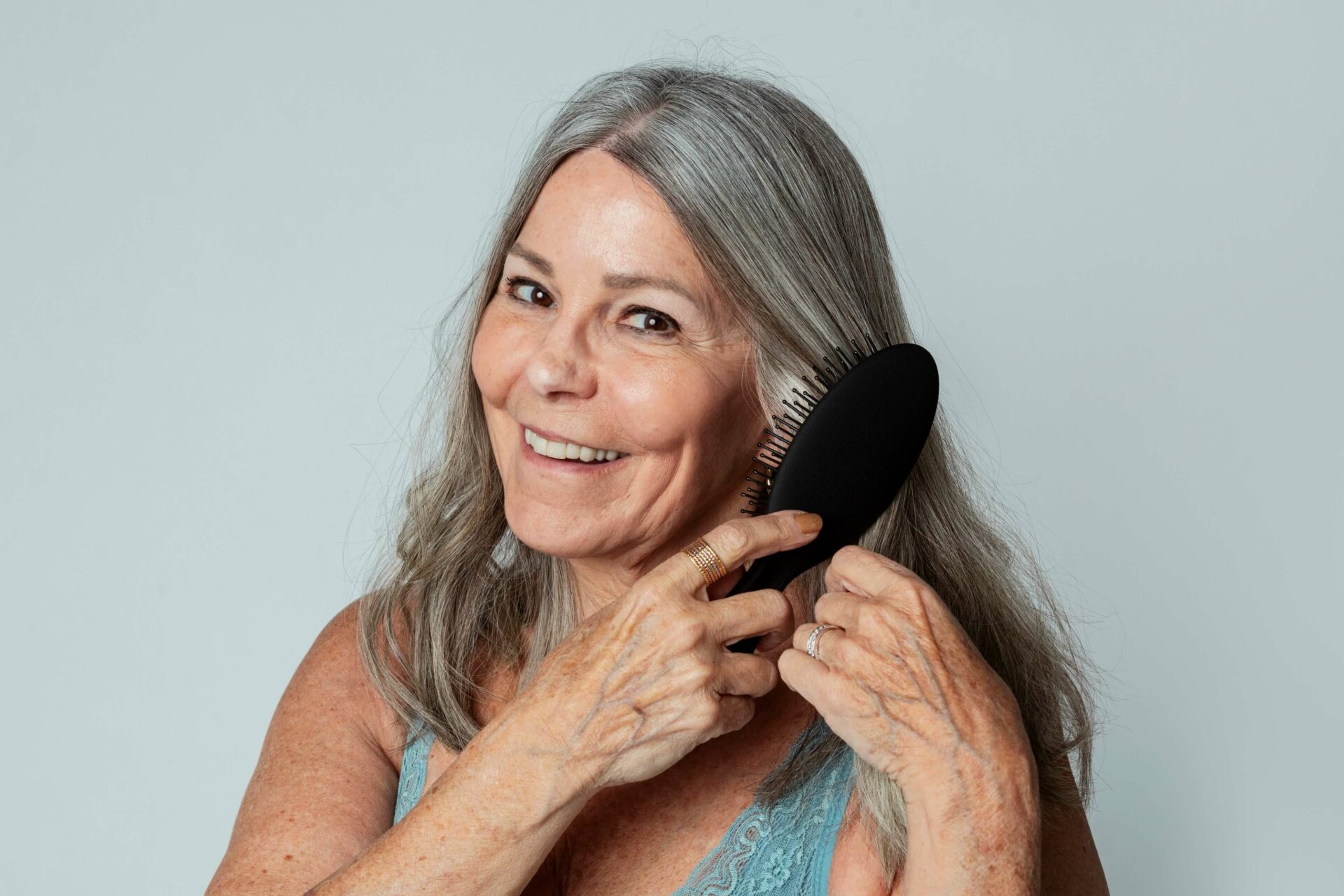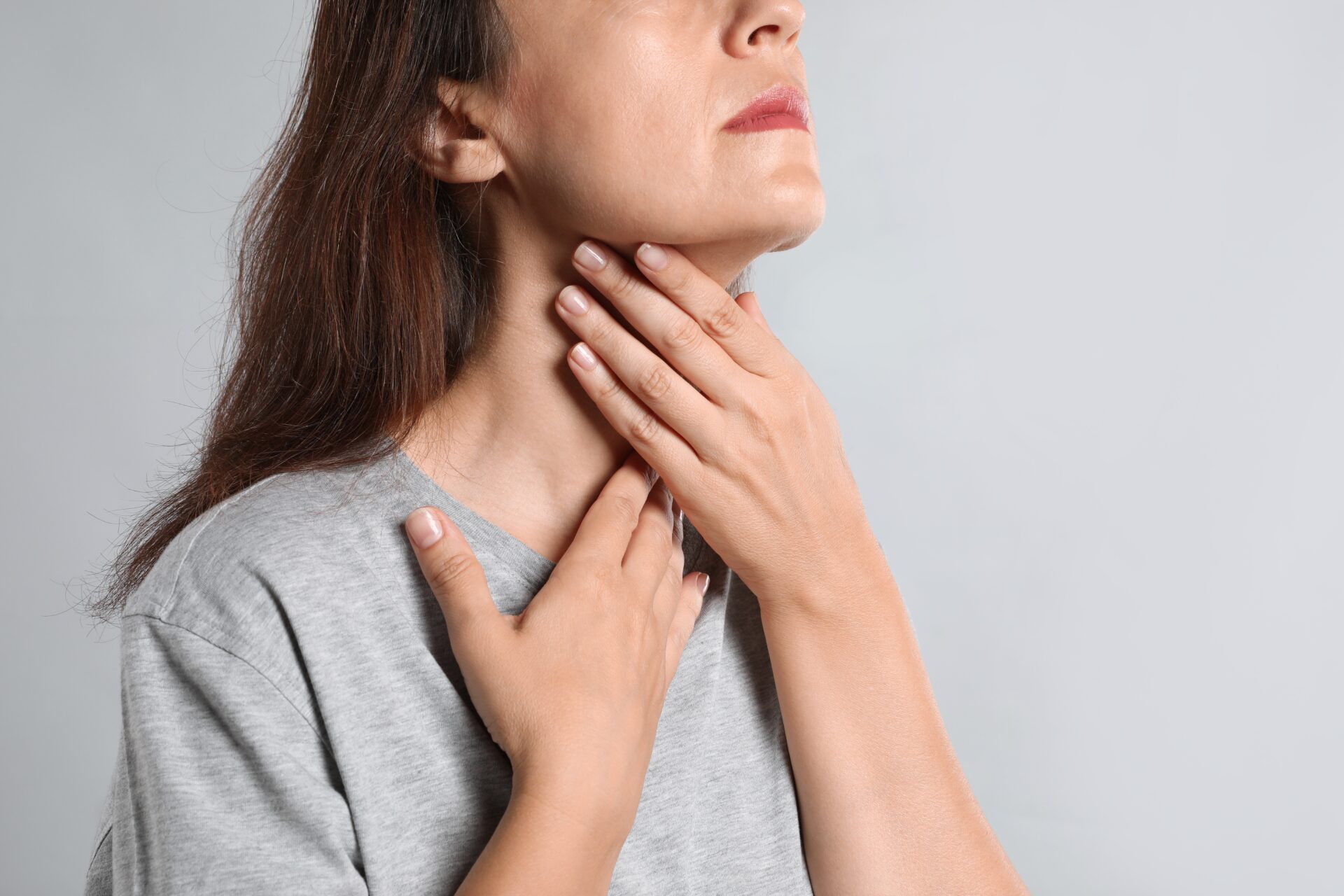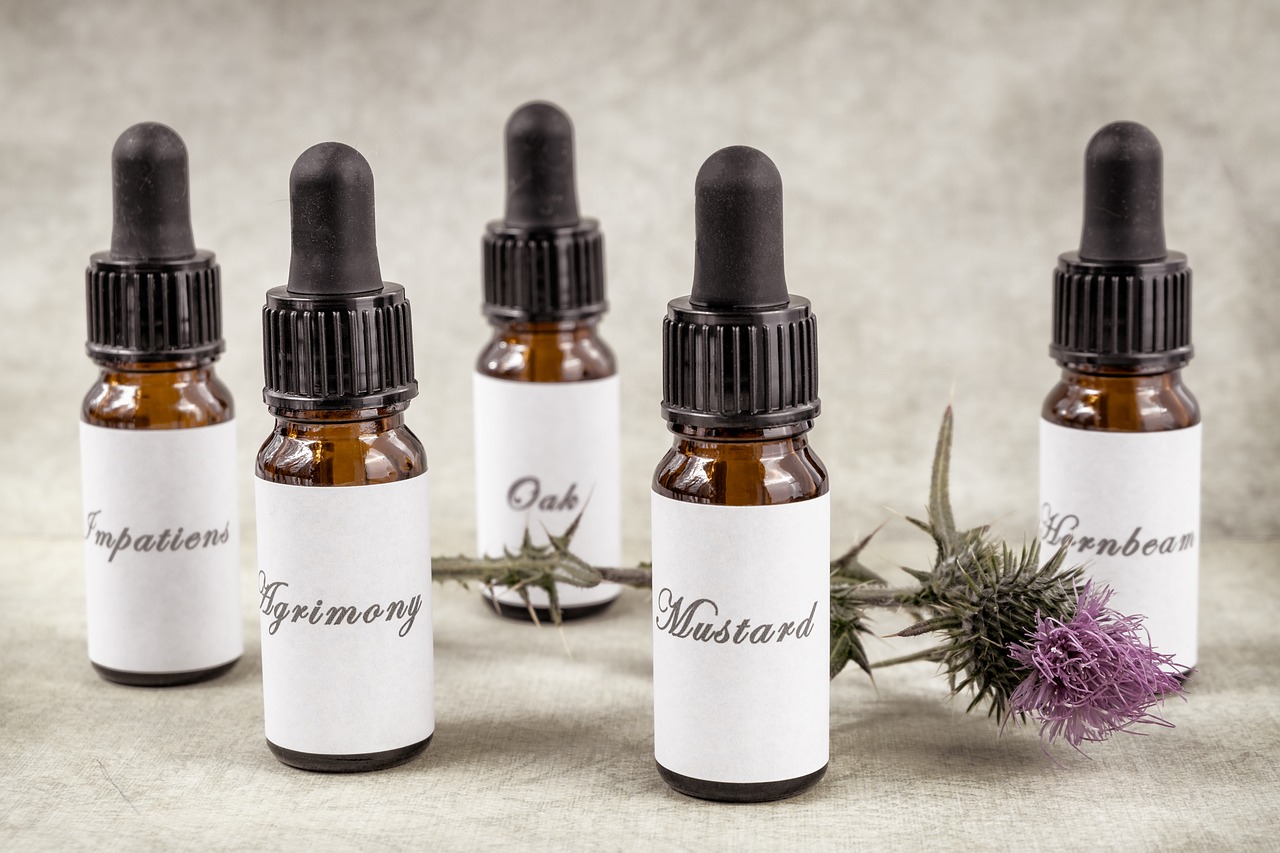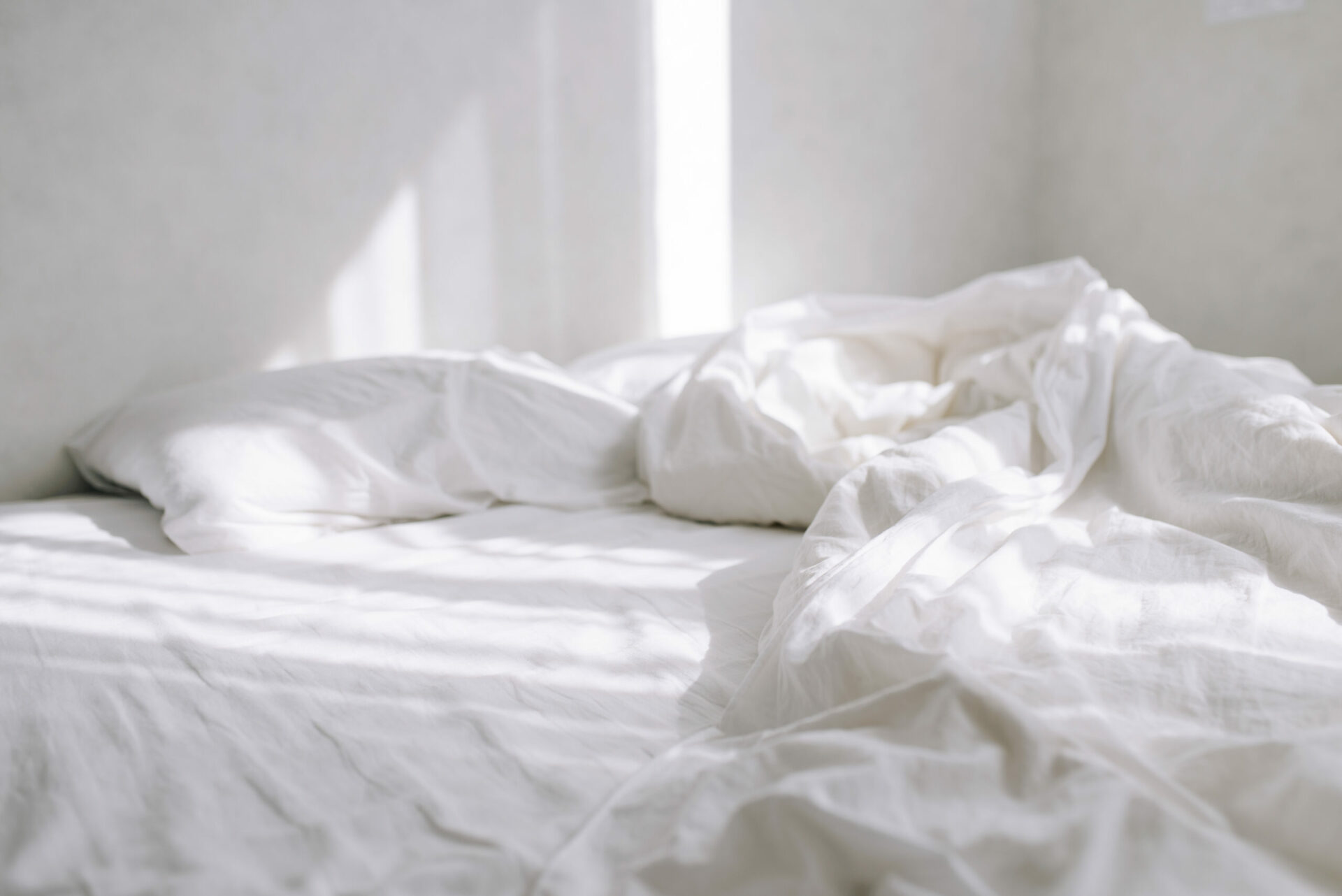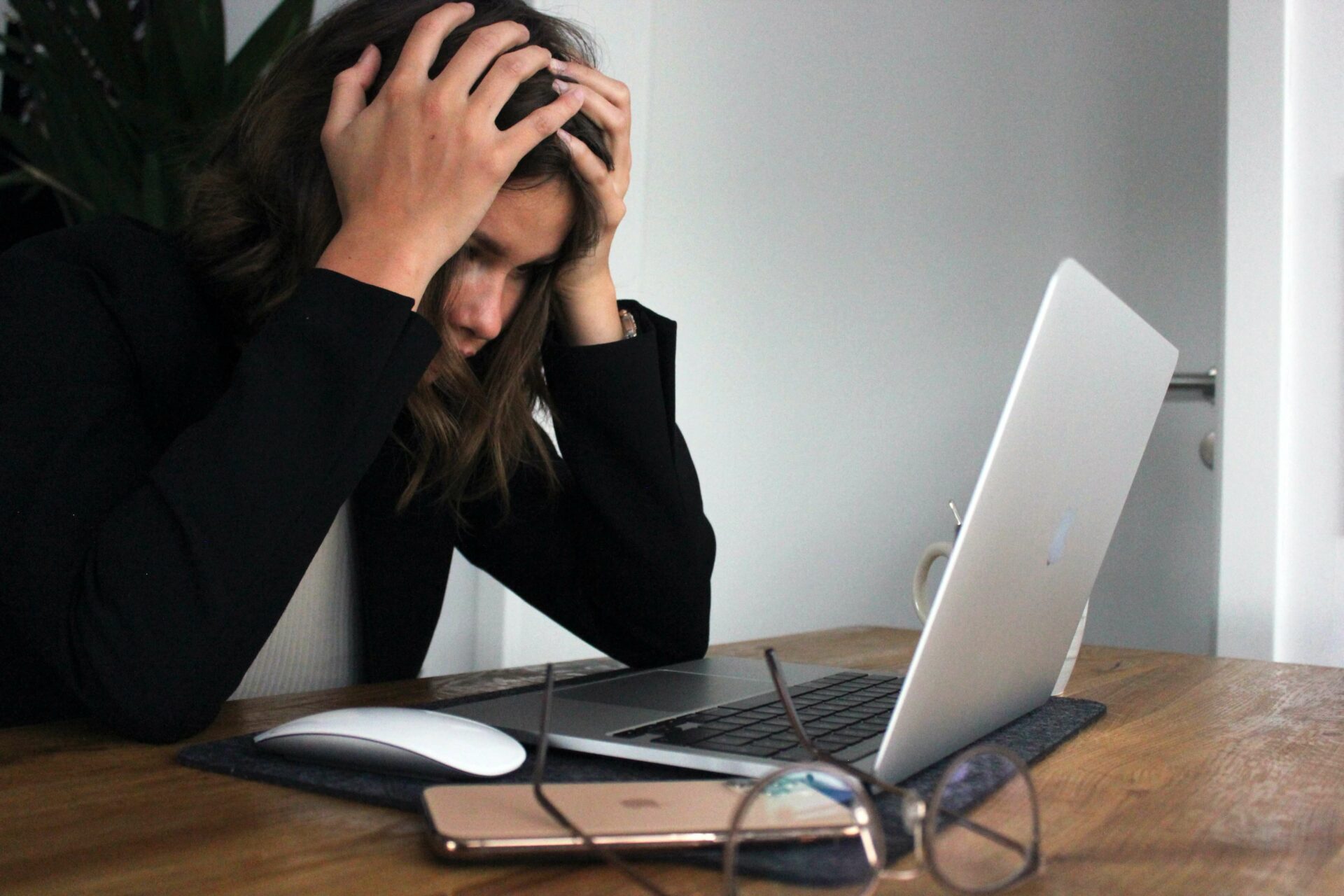Everyone has probably heard of panic attacks. Maybe you've even experienced it yourself. If so, then you know that it's not a pleasant experience and you wouldn't wish it on anyone else. That's why we've collected the most important points about panic attacks and effective ways of dealing with them below. If this sounds interesting and you want to find out more, we hope you enjoy reading it!
With natural methods, such as the individual spagyric mixtures from Zimply Natural, your complaints can be relieved naturally and sustainably.
Table of contents
- What are panic attacks?
- These are possible causes and triggers of panic attacks
- How panic attacks can affect you
- Fighting panic attacks - here's how
- Natural home remedies with a calming effect
- These exercises and practices can help you to become more relaxed
- These medicinal plants can help you cope with panic attacks
- Zimply Natural - your natural support for panic attacks
- FAQ: Questions and answers about panic attacks
What are panic attacks?
Panic attacks are sudden episodes or moments of intense fear and discomfort. The attacks usually only last a few minutes and therefore usually pass quickly. The symptoms range from palpitations to shortness of breath, but can vary from person to person. Everyday life can be very affected by panic attacks, especially because there is often an extreme fear of recurring attacks. The causes are often not immediately obvious, but there are some factors that increase the risk of suffering an attack. These include the consumption of certain substances, stress, trauma and genetics. In the following, we would like to introduce you to some ways of dealing with panic attacks as well as a few tips on how to beat an attack.
That studies have shown that there is a close link between panic attacks and sleep disorders? This means that people with sleep disorders have a higher risk of developing panic attacks. Conversely, panic attacks can of course also affect sleep.
These are possible causes and triggers of panic attacks
The role of the psyche in panic attacks
Psychological factors play a very decisive role in the development of panic attacks. A generalized anxiety disorder, for example, could lead to regular overwhelming fears and worries. This is a suitable basis for panic attacks, even in moments when there is no obvious threat. Past traumatic experiences, such as an assault or a car accident, can also lead to panic in everyday life. Such experiences can intensify feelings of insecurity and threat. A state of tension can also be caused by chronic stress. Anti-Stress and persistent personal or professional problems arise. This can lead to abnormal anxiety in the long term and consequently promote panic attacks.
Panic attacks and genetics
Genetics plays an interesting role in the development of panic attacks. It is believed that the genetic predispositions that could make you prone to panic attacks can be inherited. So if you have a history of anxiety disorders in your family, you are more likely to develop one yourself. Neurotransmitters can also play a role in the development of panic attacks. The neurotransmitters serotonin or GABA are important here, as they influence mood and anxiety and can therefore also promote panic. Hormones can also be a contributing factor, as these are released during phases of life such as puberty, Menstruationpregnancy or Menopause are very volatile.
Environmental influences that can affect panic attacks
The neurochemical balances of the brain can also be affected by the consumption of substances such as caffeine, alcohol or drugs. These imbalances can increase the risk of panic attacks. Certain diseases such as cardiovascular diseases, respiratory diseases or Thyroid problems can also contribute to panic attacks as they put the body under stress. Chronic lack of sleep, an unhealthy diet and lack of exercise also have this effect. These can increase the body's stress response, which can increase the risk of panic attacks.
How panic attacks can affect you
During the panic attack
The physical symptoms of a panic attack can be very varied. The most common include palpitations, chest pain, shortness of breath, trembling, dizziness, nausea, sweating and tingling in the extremities. In addition, panic attacks are often accompanied by intense anxiety. You may fear that you will lose control or go crazy. In addition, you may feel an overwhelming need to hide or escape. Although panic attacks usually only last a few minutes, they can seem like an eternity. This short time probably feels like one of the worst moments of your life.
After the panic attack
However, this moment will pass and you will probably feel a great deal of relief at first. The symptoms have subsided and the worst phase is over. The next thing you feel is probably severe exhaustion, as panic attacks are very draining. Another emotion that usually arises after a panic attack is fear. Fear of further attacks that will put you back in this fragile state. It can also happen that you have the strong feeling that the next attack is imminent. However, this is not usually the case. Nevertheless, the whole thing leads to more attentive monitoring and greater tension in your body. You may also avoid places where you have already had a panic attack. This can of course be beneficial in some situations. In more extreme cases, however, it can lead to social isolation and a reduced quality of life.
That panic disorders can also occur in children and adolescents? However, the symptoms and triggers of panic attacks in children differ from those of adults. They can also often be confused with problems such as separation anxiety or social anxiety.
Fighting panic attacks - here's how
Tips on how you can behave during a panic attack

During a panic attack, you are naturally panicking, but it is important that you try to calm yourself down. Of course, this is easier said than done; however, we would like to give you a few pointers below. During an attack, try to calm your breathing and breathe in deeply through your nose and out through your mouth. You should also calm your thoughts, as these often lead to downward spirals. Reassure yourself that the attack will pass and reassure yourself. In addition, you can try to think about the end of your last attack, as this also passed in the end. It is also a good idea to go to a quiet environment so that your nerves are not stimulated even more. It is best to reduce stimuli such as bright lights and loud noises, as these can increase panic. Distraction, such as counting numbers backwards or looking at a picture, could also help.
How you can help others during a panic attack
Witnessing a panic attack can of course be frightening at first. The best thing you can do for yourself and the other person is to stay calm. This will give the person concerned a sense of security. It is also important that you let the other person know that you know he or she is having a panic attack. It is best to tell the person that a panic attack can be frightening, but that it will pass. Also offer to do breathing exercises together and breathe in and out slowly. This lets the person concerned know that he or she is not alone. However, avoid saying things like "Calm down", as these phrases tend to put pressure on or irritate the person. Instead, use phrases such as "It will pass" or "You are safe". A calm environment and distraction can also help to calm them down, as many stimuli tend to make the panic worse.
Natural home remedies with a calming effect
One home remedy that can generally help you to become more relaxed and calm is, for example, a certain type of tea. These include varieties such as chamomile, peppermint or passionflower, which can have a relaxing effect. They can also contribute to your healthy stress management. Herbal preparations such as valerian root or lavender oil are also often used to calm the nerves. Lavender, together with rosemary and bergamot, is also often used in aromatherapy. This relies on inhaling calming fragrances to promote relaxation and reduce stress. To promote general health, it is advisable to pay attention to your diet. Focus on a balanced diet that is rich in fruit, vegetables, wholegrain products and healthy fats.
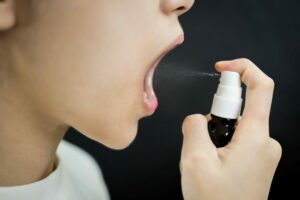
The application of your Anti-panic-Sprays iBy the way, the treatment is very simple: the spray is simply sprayed into the mouth according to the dosing instructions on the bottle. In order to achieve the best possible effect and to be able to optimally counteract the causes, we recommend using it over a longer period of six to eight weeks. As a kind of cure, spray 3×3 sprays daily.
These exercises and practices can help you to become more relaxed
A breathing exercise that can help you in stressful situations
Breathing exercises can be very good for grounding you a little in stressful situations. But they also have a great effect during panic attacks. Try to concentrate on breathing in and out deeply and consciously. You can use the 4-7-8 breathing technique as a guide, in which you first breathe in through your nose for four seconds. Then hold your breath for seven seconds until you exhale for eight seconds. Make a kind of "whoosh" sound with your lips pressed together. Repeat this process four times, ideally twice a day.
Meditation and mindfulness
Meditation can also help you to find your center and calm yourself down. To do this, sit in a quiet place, close your eyes and concentrate on your breathing. You can also recite or think a calming mantra. The mantra 'So Ham', which means 'I am', is a popular one. It is a mantra that is not linked to any religion and can be combined well with inhaling and exhaling. For your everyday life, you can also try the method of mindfulness, in which you perceive moments without judgment or evaluation. Focus on your surroundings and perceive them with all your senses. For example, be aware of what you are eating, feel the consistency and taste the flavor.
Exercises and practices for more peace of mind
If the previous exercises didn't work so well for you, we have some more active practices for you below. When you are stressed or feeling panicky, it is often difficult to sit still and think about nothing. Progressive muscle relaxation is an activity that requires you to do something. First tense up for a few seconds and then consciously relax the specific muscle. Start with your toes and slowly work your way up to your head. In yoga, you can try gentle poses such as downward-facing dog, cat-cow pose or child's pose to ground yourself. To relax, you can also try autogenic training. The technique of this is that you repeat calming phrases and thus bring your body to rest. The sentences could be something like: "My body is calm and relaxed" or "I feel safe and secure".
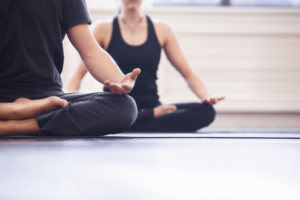
That caffeine can trigger or worsen panic attacks in some people? Caffeine affects the heart rate and the nervous system.
These medicinal plants can help you with anxiety about the future
Suddenly occurring states of anxiety and shock lead to fever, cramps and pain due to a strong activation of the central nervous system caused by stress. The Aconite influences the central nervous system with its nerve-active substances, calms it and counteracts the effects of fear or shock. The fever, cramps and associated pain subside and the regeneration phase can begin.
People with anxiety or panic disorders often also suffer from sleep problems. These can manifest themselves in restlessness and the fact that you can feel your heart beating when lying down. This feeling prevents sleep and is unpleasant. As the Foxglove strengthens the heart and makes it beat more evenly, the unpleasant feeling in the chest calms down. So nothing stands in the way of a good night's sleep.
The Iris is said to have calming properties. It is often regarded as a natural sedative and helps to reduce stress. This can reduce the physical and emotional symptoms of anxiety. The effect on the central nervous system, which can reduce the release of stress hormones such as cortisol, contributes to this.
Nux vomica is tension-reducing. In very small doses, as a homeopathic or spagyric preparation, Nux Vomica has a relaxing effect. The central nervous system is calmed, the stress level decreases and the whole body relaxes again. The influence on the nervous system is also reflected in a calming effect on sleep.
The effect of Kava-Kava is described as being similar to benzodiazipines. Its relaxing and anxiolytic effects on a physical and psychological level reduce anxiety and restlessness. However, no short-term results are to be expected. In the studies, kava kava had to be taken for about a week before the first effects could be felt. The maximum effect was reached after approx. 4 weeks. The great advantage of kava kava is that it works well but does not cause any dependency.
Zimply Natural - your natural support for fears about the future
With Zimply Natural, we are the antidote to painkillers, sleeping pills, and standard medications. We are your medicine! For our mixtures we use the centuries-old natural healing method of spagyric back. The Spagyric combines the herbal active ingredients and phytotherapeutic elements of the HealingplantsThe mineral salt qualities, as well as the subtle information of the medicinal plants and the energetic potential of the Bach flowers.
With natural methods, such as the individual spagyric mixtures from Zimply Natural, your complaints can be relieved naturally and sustainably.
FAQ: Questions and answers about panic attacks
Can a panic attack be verified by a doctor?
Doctors cannot physically detect panic attacks, but they will probably carry out tests to rule out other illnesses. These include blood tests to check for possible Thyroid problems or other hormonal imbalances. Electrocardiographic examinations (ECG) are also frequently carried out to rule out heart problems.
How do panic attacks differ from other mental illnesses such as anxiety disorders or phobias?
Anxiety disorders are characterized by the fact that they are chronic and involve a prolonged period of worry and tension. Panic attacks tend to involve brief extreme moments, but can be associated with anxiety disorders. Phobias are excessive fears of specific objects, activities or situations. In contrast to panic attacks, phobias occur when the person is directly confronted with the specific trigger. Panic attacks often have no visible or specific cause.
Which illnesses have a similar effect to panic attacks?
Diseases that are also accompanied by palpitations are angina pectoris (chest tightness) or cardiac arrhythmia. They can also cause symptoms such as chest pain, shortness of breath, palpitations and dizziness. Thyroid problems, such as hyperthyroidism, can have similar effects to panic attacks, for example palpitations, trembling and sweating. Respiratory diseases such as Asthma, COPD or hyperventilation syndrome can also cause chest tightness, rapid breathing and shortness of breath.


